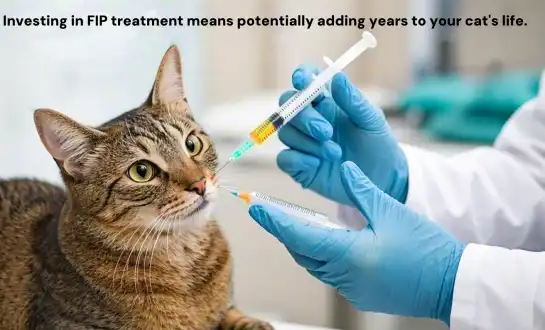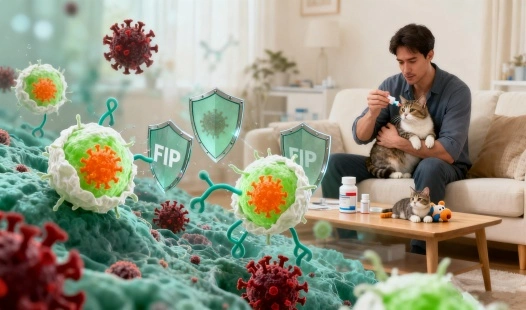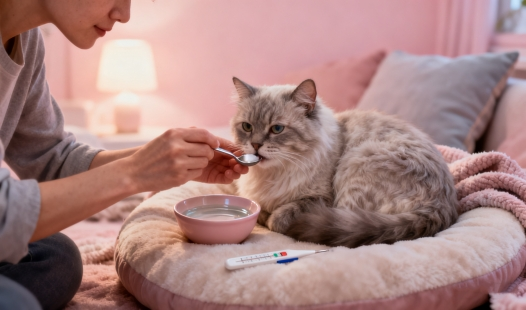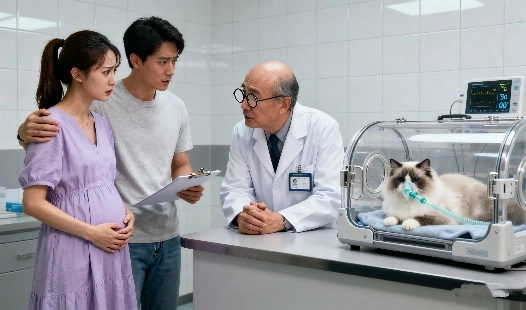Before beginning GS-441524 therapy, it is essential to perform a comprehensive baseline blood panel for your cat. This initial assessment serves as a critical reference point, allowing veterinarians to evaluate your cat's overall health before introducing the antiviral treatment. By establishing baseline values for key parameters such as liver enzymes, kidney function, and complete blood counts, any changes or abnormalities that arise during therapy can be more accurately identified. Monitoring these values throughout the course of GS-441524 treatment enables early detection of potential side effects, supports timely dosage adjustments, and ensures the safety and efficacy of the medication. Conducting a thorough baseline blood panel is therefore not just a routine step, but a fundamental component of responsible FIP management, providing peace of mind for cat owners and veterinarians alike while promoting the best possible outcomes for the patient.
How to monitor your cat’s bloodwork during GS 441524 treatment?
Essential Blood Tests for FIP Cats
A terrible illness known as Feline Infectious Peritonitis (FIP) affects cats worldwide, often leaving pet owners feeling helpless and worried about their feline companions. Fortunately, the development of GS 441524 therapy has brought renewed hope, offering a promising treatment option for many cats suffering from this devastating disease. To ensure that this therapy is both safe and effective, it is essential to closely monitor your cat's bloodwork throughout the course of treatment. Regular blood tests help veterinarians detect any potential side effects early, assess organ function, and adjust dosages if necessary. Keeping track of bloodwork while your cat is receiving GS-441524 may seem daunting at first, but with careful guidance and the help of our detailed, step-by-step guide, the process becomes manageable and empowers owners to provide the best care possible for their pets.



Essential Blood Tests for FIP Cats
When treating FIP with GS-441524, several blood tests are vital for assessing your cat's health and treatment progress. These tests provide valuable insights into various body functions and help veterinarians make informed decisions about the treatment course.
Complete Blood Count (CBC)
A CBC is a fundamental test that evaluates different components of the blood, including:
- Red blood cells (RBCs): Assess anemia, a common issue in FIP cats
- White blood cells (WBCs): Indicate infection or inflammation
- Platelets: Important for blood clotting
Serum Chemistry Panel
This panel provides information about organ function and electrolyte balance. Key components include:
- Albumin: A protein produced by the liver
- Globulin: Another type of protein, often elevated in FIP
- Liver enzymes: ALT, AST, and ALP
- Kidney function markers: BUN and creatinine
Specific FIP-Related Tests
In addition to standard blood tests, your veterinarian may recommend:
- Alpha-1 acid glycoprotein (AGP): Often elevated in FIP cases
- Feline coronavirus antibody titers: To monitor virus levels
|
|
|
Frequency of Laboratory Monitoring
Regular blood tests are crucial for tracking your cat's response to GS 441524 treatment and identifying any potential issues early on.
Initial Testing
Ongoing Monitoring
The frequency of blood tests during treatment may vary based on your cat's condition and veterinarian's recommendations. However, a typical schedule might include:
- Weekly tests for the first month of treatment
- Bi-weekly tests for the second month
- Monthly tests for the remainder of the treatment period
Post-Treatment Follow-ups
After completing the GS-441524 treatment course, regular follow-up blood tests are essential to ensure the cat remains in remission. These may be conducted:
- One month after treatment completion
- Three months post-treatment
- Six months post-treatment
- Annually thereafter
|
|
|
|
Interpreting Blood Work Results During Treatment
Understanding your cat's blood work results is crucial for assessing the effectiveness of GS 441524 treatment and identifying any potential complications.
Key Parameters To Monitor
- Hematocrit: Should improve if initially low
- White blood cell count: Should normalize over time
- Albumin levels: Should increase if initially low
- Globulin levels: Should decrease if initially elevated
- A:G ratio: Should improve towards normal range
Positive Signs Of Improvement
During successful GS-441524 treatment, you may observe:
- Increasing hematocrit in anemic cats
- Normalizing white blood cell counts
- Improving liver and kidney function markers
- Decreasing inflammation indicators
Potential Red Flags
Be aware of the following warning signs that may indicate treatment complications or the need for dose adjustment:
- Persistent or worsening anemia
- Elevated liver enzymes
- Declining kidney function markers
- Failure of globulin levels to decrease
Conclusion
Monitoring your cat's bloodwork during GS-441524 treatment is a critical aspect of managing FIP. Regular testing allows for timely adjustments to the treatment plan and ensures the best possible outcome for your feline companion. In addition to clinical considerations, pet owners should be aware of the GS-441524 cost, as it may influence treatment planning and frequency of monitoring. Always work closely with your veterinarian to interpret blood work results and make informed decisions about your cat's care while balancing both medical and financial factors.
FAQ
Q1: How long does GS-441524 treatment typically last?
A1: The standard treatment course for GS-441524 is typically 12 weeks. However, some cats may require longer treatment periods based on their individual response and disease severity.
Q2: Can I administer GS-441524 at home?
A2: While GS-441524 can be administered at home under veterinary guidance, it's crucial to follow proper dosing instructions and maintain regular check-ups with your veterinarian for blood work monitoring.
Q3: What are the potential side effects of GS-441524 treatment?
A3: Common side effects may include injection site reactions, temporary loss of appetite, and mild gastrointestinal upset. Severe side effects are rare but can include kidney or liver issues, which is why regular blood work monitoring is essential.
Trust BLOOM TECH for Your GS-441524 Needs
Here at BLOOM TECH, we know how important it is to provide cats with high-quality GS-441524 when they have FIP. The purity and effectiveness of our pharmaceutical-grade GS-441524 powder are guaranteed by the rigorous quality control processes used during manufacturing. Our GMP-certified facilities and years of expertise in organic synthesis allow us to consistently meet your veterinary demands with dependable supplies. While ensuring the best care for your patients, it is also important to consider the GS-441524 cost, so you can plan treatment effectively. The health of your patients is too important to settle for subpar care. You can trust BLOOM TECH as your GS-441524 supplier.
For inquiries about our GS-441524 powder or other veterinary pharmaceutical ingredients, please contact our expert team at Sales@bloomtechz.com. We're committed to providing you with the highest quality products and exceptional service to support your FIP treatment protocols.
References
1. Pedersen, N.C., et al. (2019). Efficacy and safety of the nucleoside analog GS-441524 for treatment of cats with naturally occurring feline infectious peritonitis. Journal of Feline Medicine and Surgery, 21(4), 271-281.
2. Murphy, B.G., et al. (2020). Treatment of cats with feline infectious peritonitis with GS-441524. Animals, 10(6), 1068.
3. Dickinson, P.J., et al. (2020). Antiviral treatment using the adenosine nucleoside analogue GS-441524 in cats with clinically diagnosed neurological feline infectious peritonitis. Journal of Veterinary Internal Medicine, 34(4), 1587-1593.
4. Addie, D.D., et al. (2020). Feline infectious peritonitis. ABCD guidelines on prevention and management. Journal of Feline Medicine and Surgery, 22(11), 1047-1068.

Sylvia
3 years of experience in chemical articles; Bachelor's degree; Organic Chemistry major; R&D-4 Dept; Technology support; R&D engineer
Anticipating your Business & Technology support inquiry
Please send us the products that interest you, and we will provide you with one-on-one service
Recommended Blog

Is FIP Treatment Too Expensive? How to Budget for GS-441524?

An FIP Cat's Treatment Diary: Tracking Changes Day-by-Day on GS-441524










_副本_1758244779329.webp)
_副本_1761184893861.webp)
_副本_1760325313811.webp)
_副本_1758248142309.webp)




